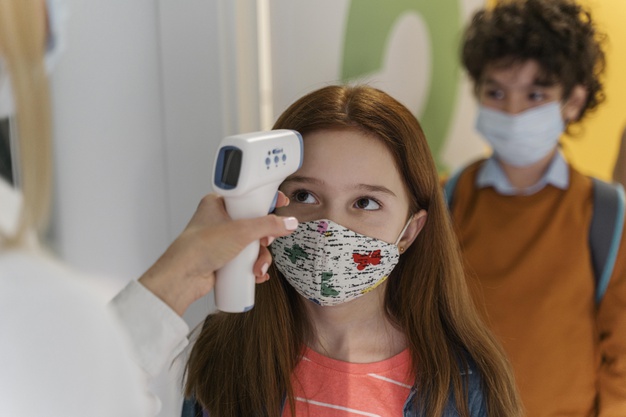For age-old conditions such as the common cold and new diseases which are known to have no cure, the call for safe and natural treatments using supplements comes into the picture. So, people tend to have a lot of interest in supplements for COVID-19, whether as a prevention or treatment.
Supplements like zinc, vitamin C, vitamin D, and few others have been commonly prescribed from the earliest days of the pandemic. But there is still a debate about whether they work.
How Supplements Might Prevent Covid-19?
Few reasons state the supplements might work against the virus.
- Vitamin C which is an antioxidant acts as a key player in healthy immune function.
- Zinc has an antiviral activity that improves immune cell function that counters viral infections by reducing the ability of viruses to multiply.
- Few studies suggest that combining vitamin C and zinc may limit the duration and severity of the symptoms.
- Studies suggest that vitamin D may have positive effects on immune function, but their specific antiviral effect remains unproven.
Is There Any Evidence To Say Supplements Are Helpful For Covid-19?
COVID-19 is a new infection that is spread worldwide. Few clinical trials have been tried to explore the possibility that supplements may be effective. Unfortunately, most of the evidence is unconvincing.
From trials performed, it was found that people receiving individual or combined supplements showed no faster recovery rates and any improvement in symptoms when compared with others who didn’t receive supplements.
Advantages Of Taking Supplements Without Evidence
People with nutritional deficiencies are given supplements to improve their health. Zinc or vitamin D deficiencies might contribute to poor immune function. So, even without proper evidence linking supplement use with improvement among people with COVID-19, these supplements may be suitable for people who have a deficiency or are suspected to have a deficiency.

Central Government issues separate COVID-19 guidelines for children
Majority of children with Covid-19 may be asymptomatic or mildly symptomatic. Common symptoms include fever, cough, breathlessness or shortness of breath, fatigue, myalgia, rhinorrhea, sore throat, diarrhea, loss of smell, loss of taste among others.
The Union ministry of health and family welfare has issued protocol for managing children with the coronavirus disease (Covid-19) with separate guidelines for those who are asymptomatic and those with mild, moderate and severe illness. It says asymptomatic children do not require any treatment, except monitoring for development of Covid-19 symptoms and subsequent treatment according to assessed severity.
“Majority of children with covid infection may be asymptomatic or mildly symptomatic. Common symptoms include fever, cough, breathlessness or shortness of breath, fatigue, myalgia, rhinorrhea, sore throat, diarrhea, loss of smell, loss of taste etc. Few children may present with gastrointestinal symptoms and atypical symptoms. A new syndrome with name of multi system inflammatory syndrome has been described in children. Such cases are characterized by: unremitting fever > 38oC, epidemiological linkage with SARS CoV-2 and clinical features suggestive of Multi System Inflammatory Syndrome,” it said on Thursday.
What is the protocol for managing children with Covid-19?
The health ministry said children with Covid 19 infection may be asymptomatic, mildly symptomatic, moderately sick or severe illness. “Asymptomatic children are usually identified while screening, if family members are identified. Such children do not require any treatment except monitoring for development of symptoms and subsequent treatment according to assessed severity,” it said.
You May Like: Two masks better than one: Double masks increase protection to about 80%, says experts
Children with mild disease may present with sore throat, rhinorrhea or runny nose, cough with no breathing difficulty and a few children may have gastrointestinal symptoms, the ministry added. The guidelines state that such children do not need any investigation and can be managed at home with home isolation and symptomatic treatment. “Children with underlying comorbid condition including: congenital heart disease, chronic lung diseases, chronic organ dysfunction, Obesity (BMI> 2SD) may also be managed at home, if they have features of mild disease and there is easy access to health facility in case of any deterioration. In case there is lack of proper arrangement to manage these children at home/ access to health facility is difficult, such children may be admitted,” it said.
How should children with mild illness in home isolation be treated?
The guidelines recommend that for fever the treating doctor prescribe paracetamol (10-15 mg/kg/dose), which may be repeated every four to six hours. They recommend throat soothing agents such as warm saline gargles for cough and oral fluids to maintain hydration and a nutritious diet. Antibiotics are “not indicated” for treating mild illness in children, they said. “There is no role of Hydroxychloroquine, Favipiravir, Ivermectin, lopinavir/ritonavir, Remdesivir, Umifenovir, Immunomodulators including Tocilizumab, Interferon B 1 a, Convalescent plasma infusion or dexamethasone,” it also said.
How is moderate disease in children categorised?
A child with Covid-19 will be categorised as having the moderate disease (oxygen saturations above 90%) if they have the following:
Rapid respiration benchmarks based on the age of the child:
Less than 2 months old: respiratory rate >60/ min
Between 2-12 months: respiratory rate >50/min
Between 1-5 years: respiratory rate >40/min
Over 5 years: respiratory rate >30/min.
“Children with moderate Covid -19 disease may be suffering from pneumonia which may not be clinically apparent,” the protocol states. It says no lab tests are required routinely, unless indicated by associated co-morbid conditions.
What is the treatment recommended for moderate disease in children?
The protocol recommends that children with moderate Covid-19 disease should be admitted in a dedicated Covid health centre or secondary-level healthcare facility and monitored for clinical progress. It recommends that fluid and electrolyte balance should be maintained. “Encourage oral feeds (breast feeds in infants); if oral intake is poor, intravenous fluid therapy should be initiated,” it recommends.
Related Topic: Covid-19 vaccination open to all above 18 years from May 1
Children with moderate Covid-19 disease should be administered paracetamol 10-15 mg/kg/dose, which may be repeated every four to six hours for temperature > 38°C or 100.4°F. “Amoxycillin to be administered if there is evidence/strong suspicion of bacterial infection. For oxygen saturation below 94%, oxygen supplementation is required. Corticosteriods may be administered in rapidly progressive disease. The protocol says steroids is not required in all children with moderate illness, specifically during the first few days of illness. Supportive care for comorbid conditions, if any,” it added.
How does the protocol categorise severe disease in children?
Children with oxygen saturation level less than 90% have severe degree of Covid-19 infection. Such children may have severe pneumonia, Acute Respiratory Distress Syndrome (ARDS), septic shock, Multi-Organ Dysfunction Syndrome (MODS), or pneumonia with cyanosis or bluish discoloration caused by deoxygenation. Clinically, such children may present with grunting, severe retraction of chest, lethargy, seizure, the protocol states.
What is the treatment recommended for them?
Children with severe disease should be admitted in a dedicated Covid hospital, secondary or tertiary level healthcare facility. Few children may require care in HDU/ICU areas of these facilities. The protocol recommends that they should be assessed for thrombosis or blood clot in a deep vein, haemophagocytic lymphohistiocytosis (HLH), a severe systemic inflammatory syndrome, and organ failure. It also recommends three specific investigations for complete blood counts, liver and renal function tests, and chest X-ray. It recommends intravenous fluid therapy and corticosteriods—dexamethasone at 0.15mg/kg per dose and said that a maximum 6mg twice a day is preferred. It stresses that for anti-viral agents like Remdesivir, there is a lack of sufficient safety and efficacy data in children below 19 years of age.
Must Read: COVID-19 Proning for Self care
“Randomized controlled trials of this drug in patients above 18 years of age has not shown significant survival benefits. An emergency use authorization for children has been granted. Till more data are available, it should be used in restricted manner in children with severe illness within three days of onset of symptoms after ascertaining that child’s renal and liver functions are normal and they are monitored for side effects of medicine,” according the protocol.
You May Like:
Is double masking better? Should we double mask our children?
It has been a year now since coronavirus hit the world. Our lifestyle turned literally upside down when the pandemic started; our plans changed; our survival strategies were changed in order to survive this pandemic. One of the major steps which the Central Disease Control and Prevention (CDC) asked us to make was wearing a mask. Read More:



